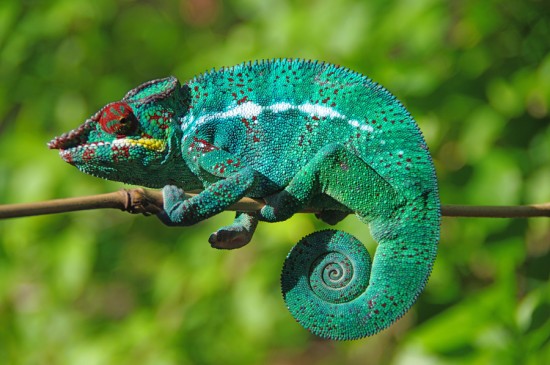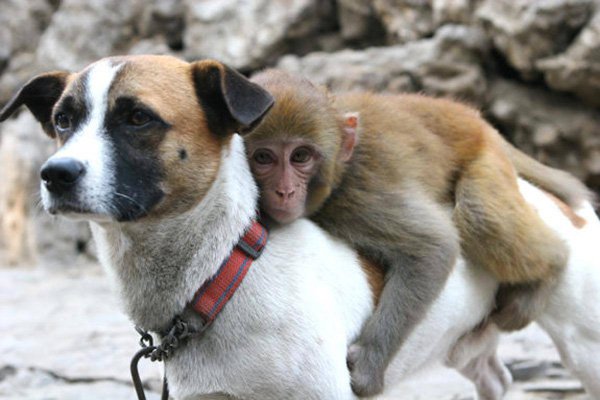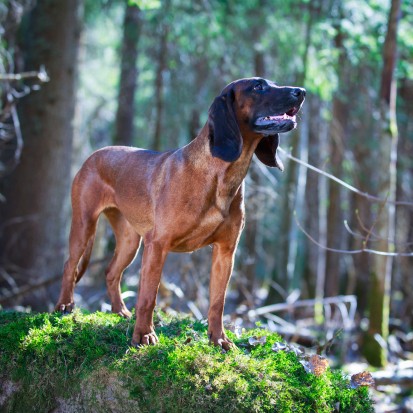

These cuter than cute little dogs are absolutely adorable and they boast massive personalities which is why over the years, the Bichon Frise has become a very popular choice of companion dog. However, if you are thinking about either adopting or buying one, you need to be aware the breed is extremely susceptible to all sorts of allergies and no matter how well bred a dog might be, they may well develop an allergy at any point in time.
A lot of dogs are susceptible to allergies, but the Bichon Frise is one of the breeds that seems to be most affected whether it's a reaction to foods, fleas or other airborne allergens, these little dogs can really suffer making life difficult for their owners too.
All dogs could have a reaction to a flea bite, but the Bichon is known to have a particularly nasty reaction to them because they are extremely allergic to flea saliva which causes excessive itching and this leads to very sore skin and hair loss. Hot spots can suddenly appear anywhere on your pet's body where a flea has bitten them.
The most common areas affected by flea bites tend to be at the base of the dog's tail and a little further up on their lower backs. If you notice any excessive scratching or sores developing, it's really important to treat your pet with a dog specific flea treatment which you should get from a vet. You would also need to treat all dog bedding and your house with a suitable product.
Certain foods can often trigger allergies the breed tends to suffer from. There are certain "fillers" that pet food manufacturers put in dog food which can be responsible for causing an allergic reaction in the Bichon. However, they might also be allergic to specific foods which includes pork, beef or even chicken.
If your Bichon has an allergy to specific foods, there are symptoms to watch out which include the following:
A vet would need to carry out specific tests to establish just which foods are triggering an allergic reaction in you pet which could take time. As such, vets tend to put dogs on certain medication in order to alleviate their discomfort. However, it's crucial to take a close look at your pet's diet and often this involves preparing home cooked meals for them.
Supplementing a Bichon's diet with probiotic supplements is also very useful because they promote good bacteria in the gut and these should be given along with certain vitamins which include the following:
The breed also suffers from allergies bought on by airborne allergens which can be a real issue for many owners. There are certain toxins and chemicals in an environment that can trigger a reaction in these cute little dogs and again, it's important to establish just what they are.
The problem is that many common household cleaning products contain chemicals which could be the triggers. With this said pesticides and lawn treatments also contain toxins and chemicals which could be responsible for an allergic reaction in a Bichon as would any airborne contaminants given off by cars and other vehicles.
Again there are certain symptoms to watch out for which include the following:
As previously mentioned, if you notice any of the above symptoms or are at all concerned, you need to discuss the problem with a vet as soon as you can in order to establish just what is triggering their allergies. The vet would be able to recommend a treatment to make life more comfortable for your dog until the cause is established.
You have to be extremely careful when using household cleaning and other products around the home and ideally you should avoid using any that contain harmful toxins or chemicals.
You should also discuss vaccinations with your vet as these too could trigger an allergic reaction in your pet. Many people believe that only necessary vaccinations should be given to a Bichon Frise and that these should only be given at three year intervals.
Allergies are a main health concern for the Bichon Frise and finding out just what triggers them is crucial for the well fare of these lovely little dogs. It often takes a long time to find out what causes an allergic reaction because the tests involve a process of elimination. As such dogs are typically put on some kind of medication in order to alleviate their discomfort. At times the irritation can be so severe that dogs chew and scratch at areas of their body so much, it can cause serious abrasions and sores which is why immediate treatment is so important.
 Chameleons - The Amazing Technicolour Pet!
Chameleons - The
Chameleons - The Amazing Technicolour Pet!
Chameleons - The
 Labrador Retriever Hereditary Health And Health Testing
Labrador Retrieve
Labrador Retriever Hereditary Health And Health Testing
Labrador Retrieve
 Research Shows That Dogs Do Get Jealous
Research Shows Th
Research Shows That Dogs Do Get Jealous
Research Shows Th
 Healthy Dog Food Choices
Healthy Dog Food Choices
In principle, food
In
Healthy Dog Food Choices
Healthy Dog Food Choices
In principle, food
In
 Is The Bavarian Mountain Hound A Good Choice Of Pet?
Is The Bavarian M
Is The Bavarian Mountain Hound A Good Choice Of Pet?
Is The Bavarian M
Copyright © 2005-2016 Pet Information All Rights Reserved
Contact us: www162date@outlook.com